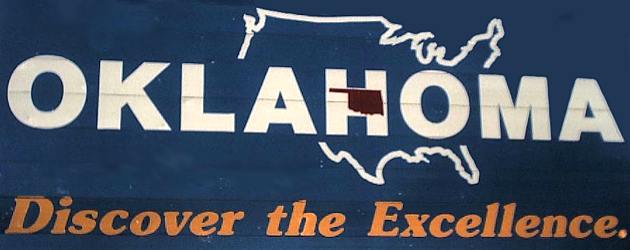 By: Lisa Keen/Keen News Service—
By: Lisa Keen/Keen News Service—
In yet another stunning victory for marriage equality, a federal judge in Oklahoma ruled Tuesday that the state’s ban on same-sex couples obtaining marriage licenses is unconstitutional.
“Equal protection is at the very heart of our legal system and central to our consent to be governed. It is not a scarce commodity to be meted out begrudgingly or in short portions,” wrote U.S. District Court Judge Terence Kern, a Clinton appointee. “Therefore, the majority view in Oklahoma must give way to individual constitutional rights.”
Kern ruled Oklahoma’s ban on same-sex marriage violated both the equal protection and due process rights guaranteed by the U.S. Constitution and he added that it is “insulting to same-sex couples, who are human beings capable of forming loving, committed, enduring relationships.”
“This is a tremendous day for loving and committed same-sex couples and their families in Oklahoma,” said Evan Wolfson, head of the national Freedom to Marry organization. Wolfson said the Oklahoma decision builds on the momentum from eight other states ending their restrictions on marriage for same-sex couples in 2013. “The federal district judge has done the right thing by affirming that marriage is a fundamental freedom for all people, gay and non-gay – for all of us who believe in liberty and fairness.” [pullquote]Kern ruled Oklahoma’s ban on same-sex marriage violated both the equal protection and due process rights guaranteed by the U.S. Constitution and he added that it is “insulting to same-sex couples, who are human beings capable of forming loving, committed, enduring relationships.” [/pullquote]
However, unlike the federal judge in Utah, Kern stayed the effect of his ruling, pending appeal to the Tenth Circuit. The Utah case, Kitchen v. Herbert, is also pending appeal before the Tenth Circuit. The effect of that ruling was stayed by the U.S. Supreme Court after more than 1,300 same-sex couples had married.
Unlike many of the current marriage equality lawsuits around the country, the one in Oklahoma, Baldwin v. Oklahoma, has been pending since 2004. Two lesbian couples, represented by private attorneys, challenged both the state constitutional amendment barring the issuance of marriage licenses to same-sex couples and the federal Defense of Marriage Act (DOMA). That amendment was passed in 2004.
“Exclusion of the defined class was not a hidden or ulterior motive; it was consistently communicated to Oklahoma citizens as a justification for [ban],” wrote Kern. This is simply not a case where exclusion of same-sex couples was a mere ‘unintended consequence’ of the law. Instead, this is a classic, class-based equal protection case in which a line was purposefully drawn between two groups of Oklahoma citizens – same-sex couples desiring an Oklahoma marriage license and opposite-sex couples desiring an Oklahoma marriage license.”
“…Instead of gender-based discrimination, the intentional discrimination occurring against same-sex couples as a result of [the ban] is best described as sexual-orientation discrimination,” wrote Kern. “The conduct targeted by [the ban] – same-sex marriage – is so closely correlated with being homosexual that sexual orientation provides the best descriptor for the class-based distinction being drawn.” [pullquote]“…Instead of gender-based discrimination, the intentional discrimination occurring against same-sex couples as a result of [the ban] is best described as sexual-orientation discrimination,” wrote Kern. [/pullquote]
“Classifications against homosexuals and/or classifications based on a person’s sexual orientation are not subject to any form of heightened review in the Tenth Circuit. Therefore, [the ban] is not subject to any form of heightened scrutiny based upon the Bishop couple’s membership in a suspect class.
“…The Court recognizes that moral disapproval often stems from deeply held religious convictions,” wrote Kern. “However, moral disapproval of homosexuals as a class, or same-sex marriage as a practice, is not a permissible justification for a law.
“…civil marriage in Oklahoma is not an institution with ‘moral’ requirements for any other group of citizens,” noted Kern. He noted that the Tulsa clerk “does not ask a [heterosexual] couple if they intend to be faithful to one another, if they intend to procreate, or if they would someday consider divorce, thereby potentially leaving their child to be raised in a single-parent home. With respect to marriage licenses, the State has already opened the courthouse doors to opposite-sex couples without any moral, procreative, parenting, or fidelity requirements. Exclusion of just one class of citizens from receiving a marriage license based upon the perceived ‘threat’ they pose to the marital institution is, at bottom, an arbitrary exclusion based upon the majority’s disapproval of the defined class. It is also insulting to same-sex couples, who are human beings capable of forming loving, committed, enduring relationships.”
The lawsuit also challenged both sections of the federal Defense of Marriage Act (DOMA). Judge Kern noted that U.S. v. Windsor has already settled the question of Section 3, defining spouse and marriage for federal benefit purposes. The Supreme Court ruled it unconstitutional. And he noted that, because the Supreme Court did not rule on the merits of the California Proposition 8 case, the constitutionality of state bans on same-sex marriage are still active. [pullquote]The lawsuit also challenged both sections of the federal Defense of Marriage Act (DOMA). Judge Kern noted that U.S. v. Windsor has already settled the question of Section 3, defining spouse and marriage for federal benefit purposes. [/pullquote]
The lead plaintiff couple, Sharon Baldwin and Mary Bishop, are both editors at the daily Tulsa World newspaper and have been together for 15 years. They had a commitment ceremony in Florida, but when they applied for a marriage license from the Tulsa city clerk, they were refused.
The other plaintiff couple, Susan Barton and Gay Phillips, has been a couple for 30 years, own a joint business helping homeless teens. They obtained a civil union license in Vermont in 2001, a marriage license in Canada in 2005, and a marriage license in California just days before voters there approved Proposition 8 in 2008.
© copyright 2014 by Keen News Service. All rights reserved.







